Machine Learning Systems Book Recommendations – Learn How to Build and Understand ML Systems
“Good friends, good books, and a sleepy conscience: this is the ideal life.” ― Mark Twain
I hope you’re reading this blog in your pjs looking forward to a rejuvenating and healthy weekend.
I have been working on multiple projects lately, from creating Machine Learing Engineering and Machine Learning Operations courses to developing end-to-end ML systems at scale. And I have realized that often times I am either revisiting a book that I’ve read or I’m referring to a book that I just skimmed through but never got the chance to really read.
This week, I want to share with you the books that I personally feel every ML enthusiast and practitioner should read to get a sense of the breadth of ideas and depth of this field.
It is a short and crisp list covering a majority of ML topics. It should be useful both for beginners getting started and intermediate-level professionals wanting to understand the intricacies of engineering successful ML systems.
So, here we go...

#1 — Hands-On Machine Learning with Scikit-Learn, Keras and TensorFlow, 2nd Edition
By Aurélien Géron
This book is simply a work of art. I highly recommend not just reading this book but also coding along with the author.
The book is divided into two parts — the first part is focused on the fundamentals of machine learnin g and covers all the major classic ML algorithms. It has just the right amount of mathematical explanation and Python code to actually start developing models.
The the second part focuses on neural networks and deep learning .
I have read through this complete book and have maybe read a few chapters two or three times in order to get the concepts right and do the exercises.
Reading tip for this one: Spend 2–3 days (or more if needed) with each chapter if you’re spending 2–3 hours learning actively.
#2 — Machine Learning Engineering
By Andriy Burkov
Andriy has done it again. This book explains each phase of the ML Systems Lifecycle and is a complete and concise resource for anyone who intends to build scalable ML-powered applications.
The book is a compilation of engineering challenges and best practices to make ML work in production. Andriy explains how you should look to plan a project, why projects might fail, and how to approach every step . Here are the sections in this book:
- Before the Project Starts
- Data Collection and Preparation
- Feature Engineering
- Supervised Model Training
- Model Evaluation
- Model Deployment
- Model Serving, Monitoring, and Maintenance .
His first book, The Hundred-Page Machine Learning Book , was a great success and the same can be said about this one as well.
#3 — Practical Deep Learning for Cloud, Mobile, and Edge
By Anirudh Koul, Siddha Ganju, and Meher Kasam
The book follows the practical advice that you should learn by doing. It's a hands-on guide to building Deep Learning applications for the cloud, mobile browsers, and edge devices. I am currently reading this book and I am surprised that I didn’t stumble upon it before.
Every chapter helps you build an application end-to-end. Each application targets a subdomain of deep learning, a different serving method, or techniques to optimize experimentation using TensorFlow.
It's a must-read for people already familiar with deep learning. This book helps you dive deeper and learn by building a set of cool projects.
#4 — Building Machine Learning Pipelines
By Hannes Hapke and Catherine Nelson
After reading a number of case studies on how organizations like Spotify and Airbnb are using TF Extended to improve their ML platforms, I started learning about TFX. It can really help you optimize the development of end-to-end pipelines.
The book explains techniques to set up ML pipelines right through from data ingestion to pipeline orchestration using Airflow or Kubeflow. TFX along with TF offers tools for every step of the process.
This is an advanced-level read, and you should indulge only after you are done reading the top two recommendations.
Interesting Read of the Week
This is a slightly unusual recommendation compared to what I usually write about. But I couldn’t resist sharing it with you because of the sheer quality of the work here.
Do you understand how an internal combustion engine works? How all of these parts come together to power your vehicles and machines? Well, I have come across the best possible explanation of the functionality of all the basic engine parts.
Read the article: Internal Combustion Engine by Bartosz Ciechanowski
The beautifully designed, 360 degree, in-action illustrations along with the explanation not only help you understand combustion engines, but for my part it definitely inspired me to work harder on my art.
This made me question whether our education system is doing enough to inspire us or are they just getting away with “teaching” us.
Thanks for reading!
That’s it for this week. I don’t want to bog you down with a plethora of random ML books. Feel free to reach out if you have any thoughts, recommendations, or questions.
If this tutorial was helpful, you should check out my data science and machine learning courses on Wiplane Academy . They are comprehensive yet compact and helps you build a solid foundation of work to showcase.
Web and Data Science Consultant | Instructional Design
If you read this far, thank the author to show them you care. Say Thanks
Learn to code for free. freeCodeCamp's open source curriculum has helped more than 40,000 people get jobs as developers. Get started
The Best Books on AI & Machine Learning [Compiled by Consensus]
Looking to polish your machine learning skills we've scoured the web in search of the most recommended book titles to help get your skills leveled up αsap. these are the 14 titles the most popular voices in the ml community suggests to get started.

Machine learning is one of the most popular disciplines in the field of Artificial Intelligence. Whether you’re a student, seasoned developer, or titan of industry—reading books on machine learning and artificial intelligence will ensure you stay current on one of the world’s fastest-developing fields.
- 1 Selection Criteria
- 2 The Best Machine Learning Books
- 3 The Hundred-Page Machine Learning Book
- 4 Deep Learning
- 5 Hands-On Machine Learning with Scikit-Learn and TensorFlow: Concepts, Tools, and Techniques to Build Intelligent Systems
- 6 Superintelligence: Paths, Dangers, Strategies
- 7 Machine Learning for Absolute Beginners
- 8 Artificial Intelligence: A Modern Approach
- 9 Machine Learning
- 10 Deep Learning with Python
- 11 Machine Learning For Dummies
- 12 Pattern Recognition and Machine Learning
- 13 The Singularity Is Near
- 14 The Master Algorithm
- 15 Human + Machine
- 16 Life 3.0: Being Human in the Age of Artificial Intelligence
- 17.1 Machine Learning Yearning
- 18 About These Choices
- 19 Final Thoughts
Machine learning has proven useful in distilling great actionable insights from large modern datasets. This computing revolution has seen machine learning propelled to the forefront of academia and commercial research programs.
Finding the best machine learning and Artificial Intelligence books is a daunting task. Between academic papers, textbooks, practical guides, and narrative texts there are thousands of options. This article reflects the effort to narrow the list and compile a consensus offering of the best titles available for learning machine learning.
Selection Criteria
The titles listed here were selected from a list of recommended titles across more than a dozen “best machine learning” oriented articles. The sources of these articles were chosen based on ML & AI-focused keyword searches in Google with relevancy to book recommendations. The listings here represent the titles most frequently recommended from all of these URLs. For more details on the selection criteria for this list read this project analysis .
The Best Machine Learning Books
The titles here, representing an aggregate of recommendations, reflect a diverse presentation of information. Some are textbooks, others code-inclusive practical guides, and others narrative discussions of such topics as ethics and philosophy of machine learning and artificial intelligence. They are presented in order of descending frequency of recommendation—the first being the most frequently recommended title.
Note : Links on this page may earn our website a small commission if you make a purchase. Read more about these links here .
The Hundred-Page Machine Learning Book
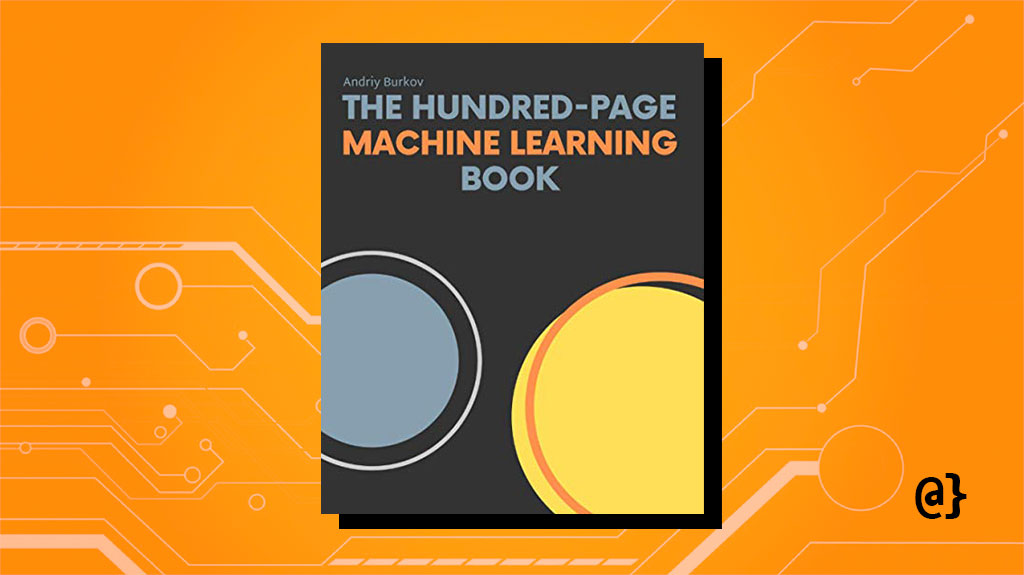
Endorsements: 7
Author(s): Andriy Burkov
ISBN: 978-1999579500
The Hundred-page machine learning book delivers what the title implies—a simple, condensed, no-nonsense survey of machine learning. This book introduces an industry-wide survey of concepts, algorithms, and applications of machine learning. It offers colorized charts, graphs, and illustrations to depict in-use ML technologies.
This book should not be regarded as rigorous academic or technical instruction and focuses on width rather than depth of study—through some existing machine learning knowledge is highly recommended before reading.
Deep Learning
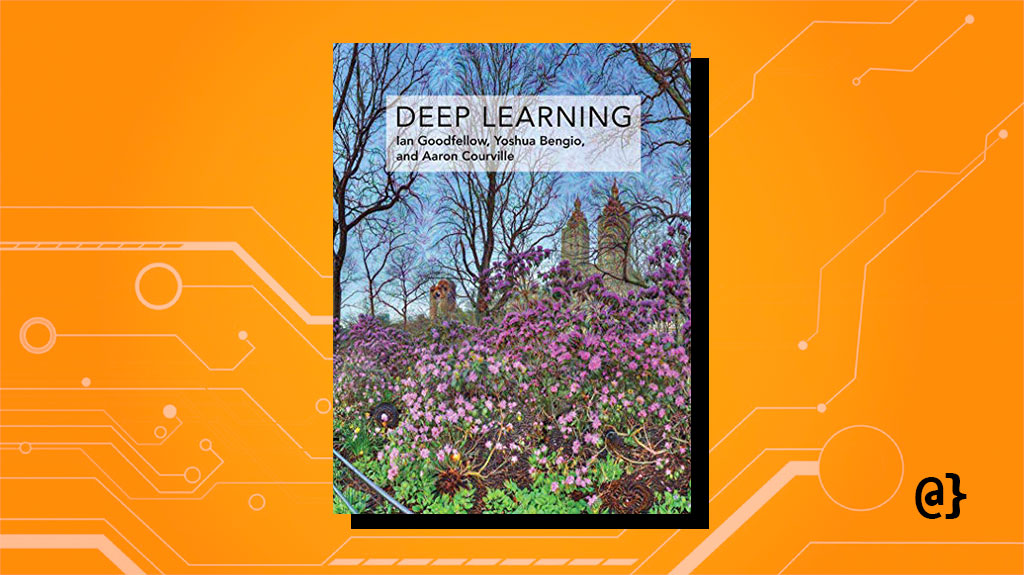
Endorsements: 5
Author(s): Ian Goodfellow, Yoshua Bengio, Aaron Courville
ISBN: 978-0262035613
This book provides a rich detailing of deep learning theory by practitioners in the field. It has a technical orientation but refrains from diving too deeply into the advanced discussion until later chapters. This book is intended for a more advanced audience interested in the foundations of Deep Learning.
Critics of this book convey their impression that it was written without enough personality and reads a bit tersely. Advocates assert the elegance in which a survey of the field is presented and note the light nature in which advanced theories are introduced.
Hands-On Machine Learning with Scikit-Learn and TensorFlow: Concepts, Tools, and Techniques to Build Intelligent Systems
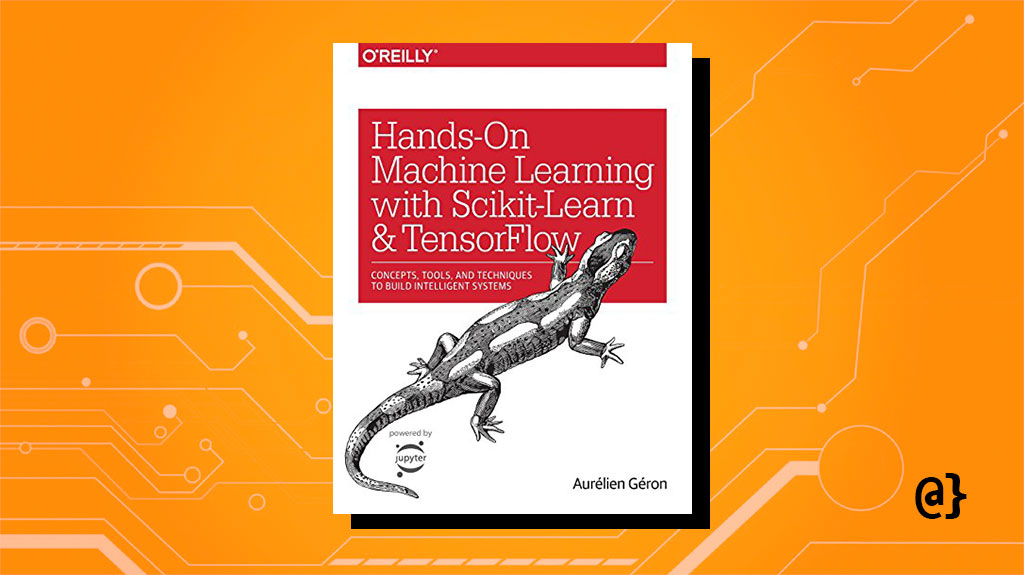
Author(s): Aurélien Géron
ISBN: 978-1491962299
This book presents readers with a gentle introduction to machine learning concepts, starting low and going slowly into more advanced applications and algorithms. The authors provide practical examples using Python, with heavy use on Keras (via TensorFlow) and Scikit-Learn.
Critics note that there have been some printing issues such that code examples and figures don’t appear in the physical book copy. Advocates often cite the accessibility, practicality, and completeness in which this book is written. For anyone familiar with the quality of O’Reilly texts—this one measures up to the expected quality and lands firmly among the most popular machine learning books.
Superintelligence: Paths, Dangers, Strategies
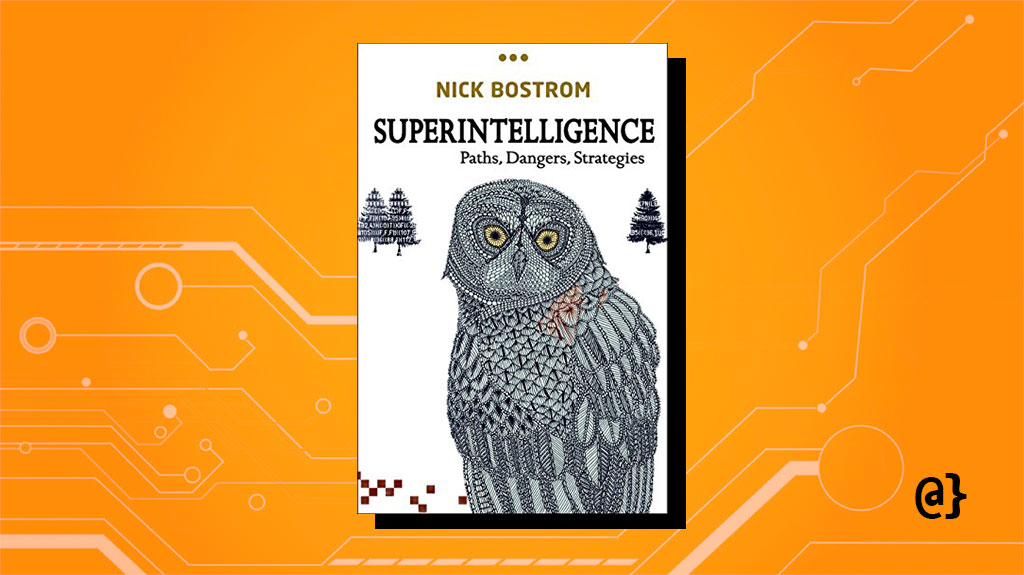
Author(s): Nick Bostrom
ISBN: 978-0198739838
Superintelligence is a narrative survey of potential pitfalls of a projected future where Artificial Intelligence develops a robust general intelligence surpassing that of humans. This book offers footnotes, bibliographic references, and industry insights related to a possible future where AI has brought misfortune to humankind. The authors discuss potential negative outcomes of AI systems with respect to economics, ethics, and possible development routes to such a disaster.
Critics note this book presents information in a slightly repetitive manner and in a format much too technical for the average reader. Advocates note the level of detail reinforces the authors’ arguments, and that the warnings expressed are much needed as we enter an age with deeper AI integration in our collective daily lives.
Machine Learning for Absolute Beginners
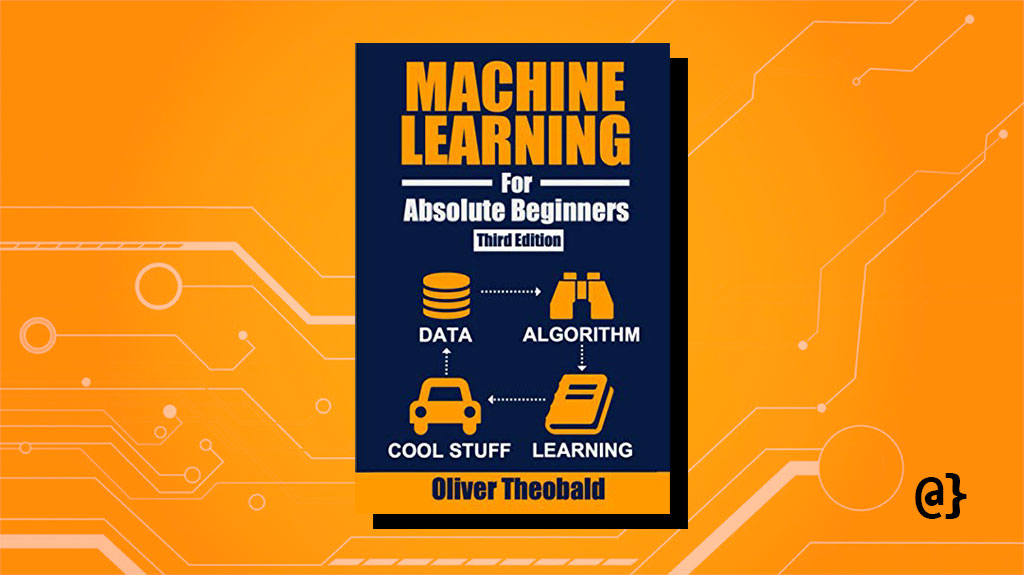
Author(s): Oliver Theobald
ISBN: 979-8558098426
This book delivers what one expects after reading the title: a survey of machine learning catered to the technical awareness of an absolute beginner. This title provides a survey of concepts, vocabulary, and applications for common machine learning technologies. This book is not intended for those looking for advanced study or even considerable elaboration on specific topics. Rather, Machine Learning for Absolute Beginners serves more like a roadmap to the ML industry, its developing technology, and the algorithms at its heart.
Critics express the opinions this book contains not enough elaboration, doesn’t adequately express mathematical concepts, or in some cases becomes a bit too technical. Advocates argue this to be one of the best introduction machine learning books for providing a survey of information to guide one’s study. Its worth noting this book is now in the third edition and, as such, one might find a lower number of available reviews given the majority are associated with previous editions.
Artificial Intelligence: A Modern Approach
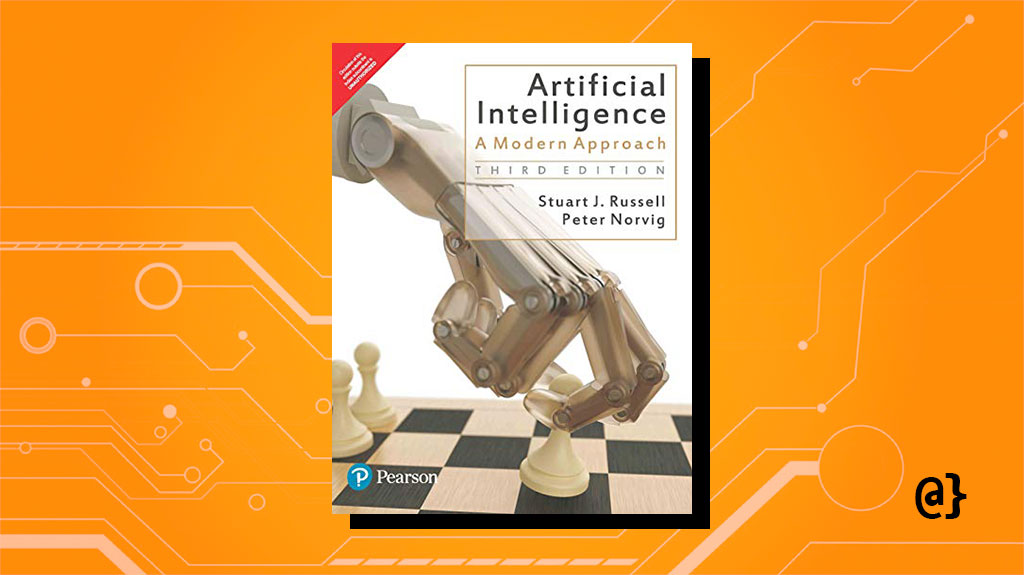
This is a textbook-format introduction to the theory and practice of many emerging applications of artificial intelligence. It’s designed as a two-semester course suitable for graduate or undergraduate level comprehension of AI subject matter. Topics surveyed include Intelligent Agents, Uncertainty, probability, neural networks, reinforcement learning, and much, much, more.
Advocates of this book note that it does well to cover nearly the entire field of AI in a comprehensive manner, the accessible writing style and prose used by the authors, commonly suggest its inclusion as a “classic” among AI texts. Critics note this book has often been received in a poor quality of physical binding (publisher issue, not content,) that the indexing and table of contents don’t offer any help in accessing the material, and a lack of practical examples (heavy on theory.)
Endorsements: 4
Pages: 1136
Author(s): Stuart J. Russel, Peter Norvig
ISBN: 978-9332543515
Machine Learning
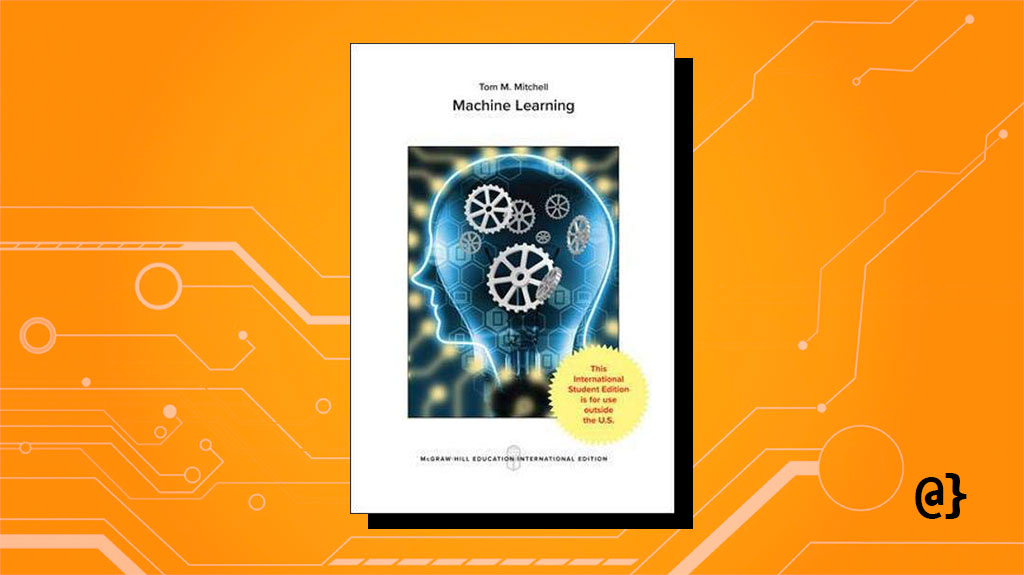
This is a textbook format book offering a comprehensive introduction to machine learning concepts and algorithms. It doesn’t strive to be the authority on any specific topic within the machine learning field but rather to provide readers and students with a wide view of the field. The topics and discussions are presented in a concise and accessible format along with many illustrative examples providing a range of accommodation for learning styles.
Advocates of this book note the success of its authors in providing a discussion on a broad range of topics, the quality and utility of the practical examples discussed, and the timelessness of format within a fast-paced field. Critics argue some of the examples are a bit out-of-date, the price-tag being a bit high (it is a textbook), and the omission of certain newer ML concepts such as support vector machines (SVMs).
Author(s): Tom M. Mitchell
ISBN: 978-0070428072
Deep Learning with Python
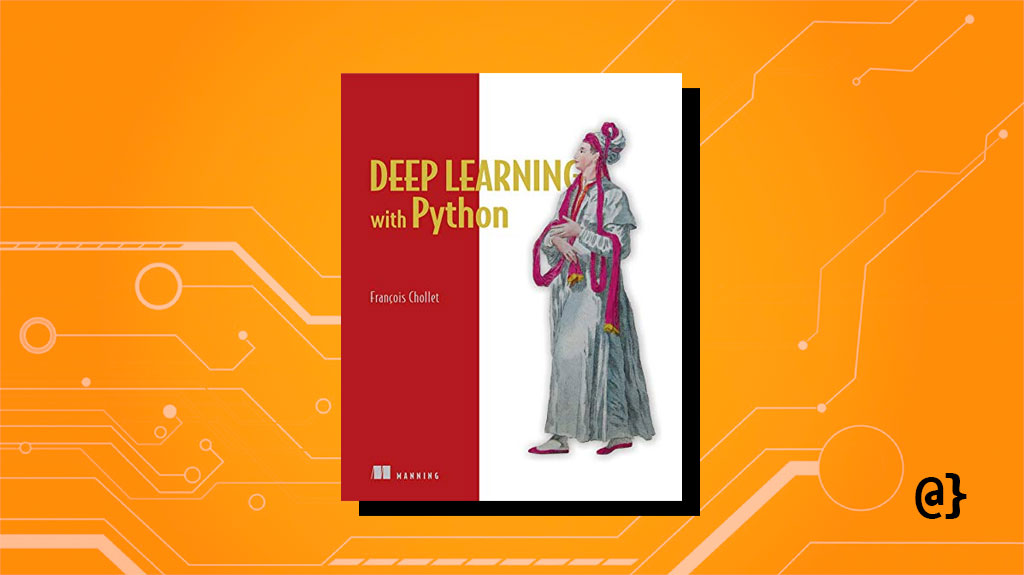
This book on machine learning was authored by Keras creator and Google AI researcher François Chollet. The book presents topics in high-level discussion with accompanying practical examples with a strong emphasis on the Keras library developed for the Python programming language. This book was written for those of any technical level interested in the field of deep learning and focuses more on code, examples, and goes light on mathematical notation and discussion.
Advocates of this book note the quality and accessibility provided in the introduction and the overall approachability of the text. In addition, the practicality of examples, utility of code examples, and the friendly weaving through more advanced topics like generative adversarial networks (GANs) are often cited as a strong selling point. Critics note many of the examples in the book require little problem solving or critical thinking and are more follow the instructions. In addition, many libraries referenced in this text are outdated, unavailable, or greatly restructured (e.g. Keras is now part of TensorFlow.)
Author(s): Gareth James, Daniela Witten, Trevor Hastie, Robert Tibshirani
ISBN: 978-1617296864
Machine Learning For Dummies
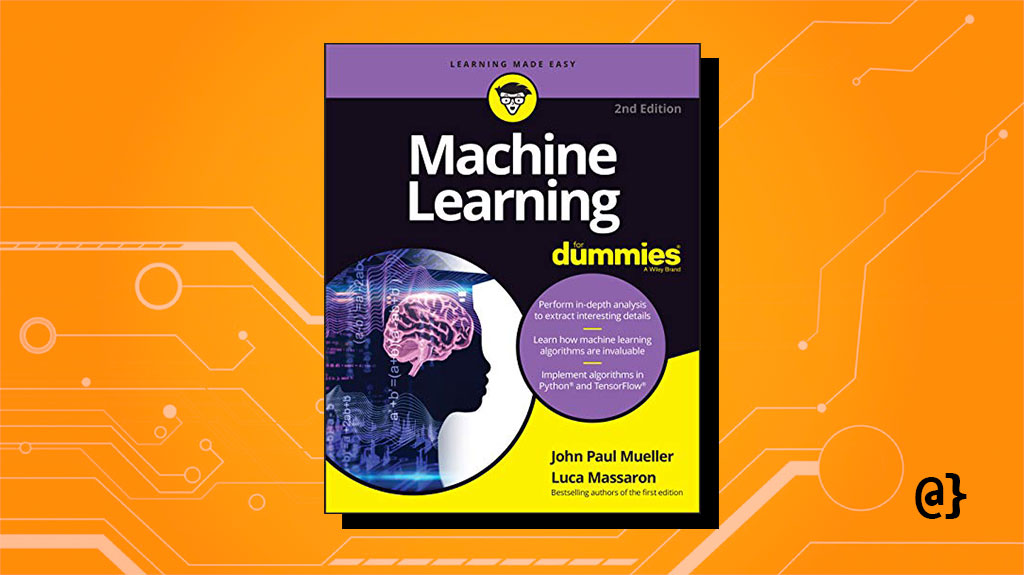
A somewhat as-expected read for anyone familiar with the for Dummies series but a gem nonetheless. This title covers a beginner-friendly, but still technically sound, introduction to machine learning and artificial intelligence as emerging fields of modern relevancy. It touches on mathematical concepts underpinning machine learning, the applications for common ML algorithms, and even walks the reader through practical steps on implementing machine learning.
Advocates of this title note the accessibility, range of discussion, and relevancy to modern ML and AI technologies in both R and Python. Critics note that the book might not be quite as accessible as the “Dummies” in the title implies presenting more advanced topics than one might expect. Expect a broad survey in technical depths suited for a range of skillsets but also parts that might seem to drag such as installing Python and/or R.
Author(s): John Paul Mueller
ISBN: 978-1119724018
Pattern Recognition and Machine Learning
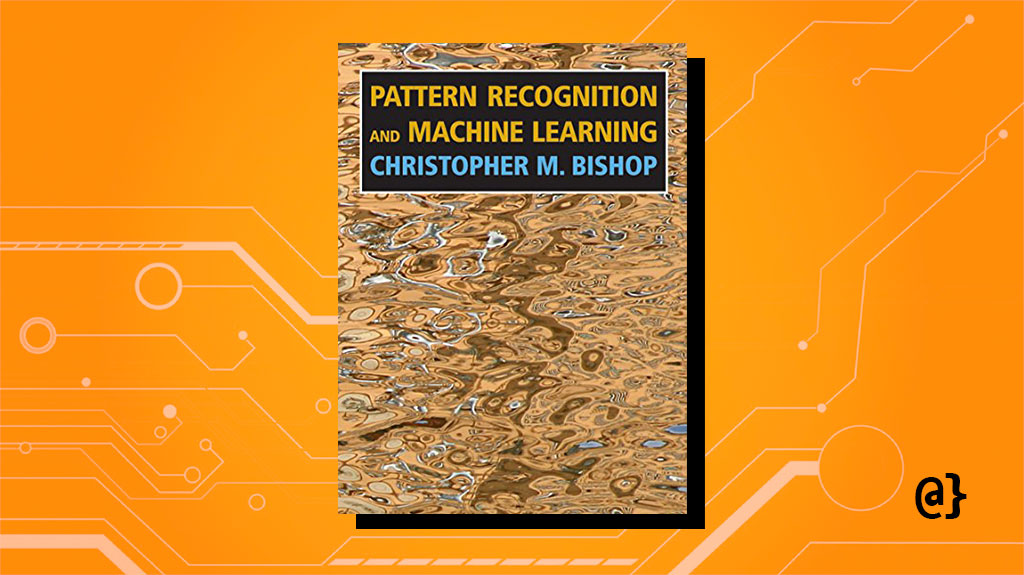
This title presents technical implementations of Bayesian-oriented pattern recognition algorithms in a textbook format. It contains deep discussions of mathematical concepts and is catered towards seasoned developers, those with a reasonably solid mathematical background, and those comfortable with basic concepts of Bayesian statistics.
Advocates of this title note that concepts are introduced in a fairly linear fashion with adequate discussion as the book progresses through examples and problem sets. In addition, the title’s targeting of graduate and Ph.D. level students is well-received by those seeking advanced information. Critics note some mathematical errors are present in the book and that, at times, the discussion could be a bit more concise as new topics are introduced.
Endorsements: 3
Author(s): Christopher M. Bishop
ISBN: 978-0387310732
The Singularity Is Near
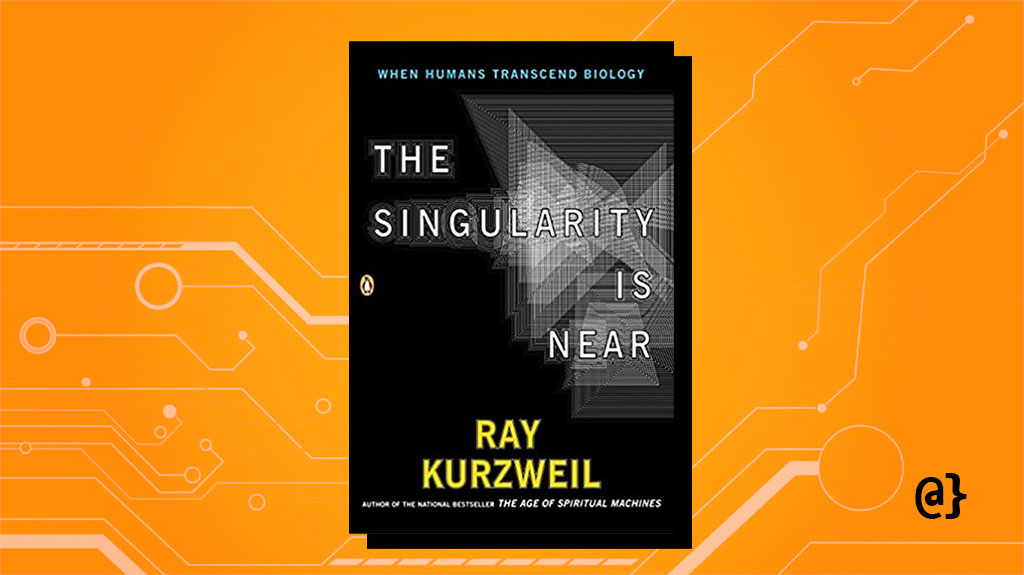
This title serves as both an education and warning of the potential dangers when humankind reaches the point where AI surpasses human intelligence. The author cites many literary and scientific references to support his points, concepts, and warnings. The premise of the book is the scenario that might result from the compounding growth of technology in the Artificial Intelligence field.
Advocates of this title note how well the author utilizes scientific support for the ideas and concepts presented. The author’s inventiveness, creativity, and ability to segue into creative discussion amidst more daunting technical forecasting. Critics note the concepts presented are hardly new and that the basic premise has been discussed for decades. Additionally, those critical of this title commonly report their surprise at the technical nature of the subject matter whereas a more fictional, Sci-Fi thriller might have been expected.
Author(s): Judea Pearl, Dana Mackenzie
ISBN: 978-0739466261
The Master Algorithm
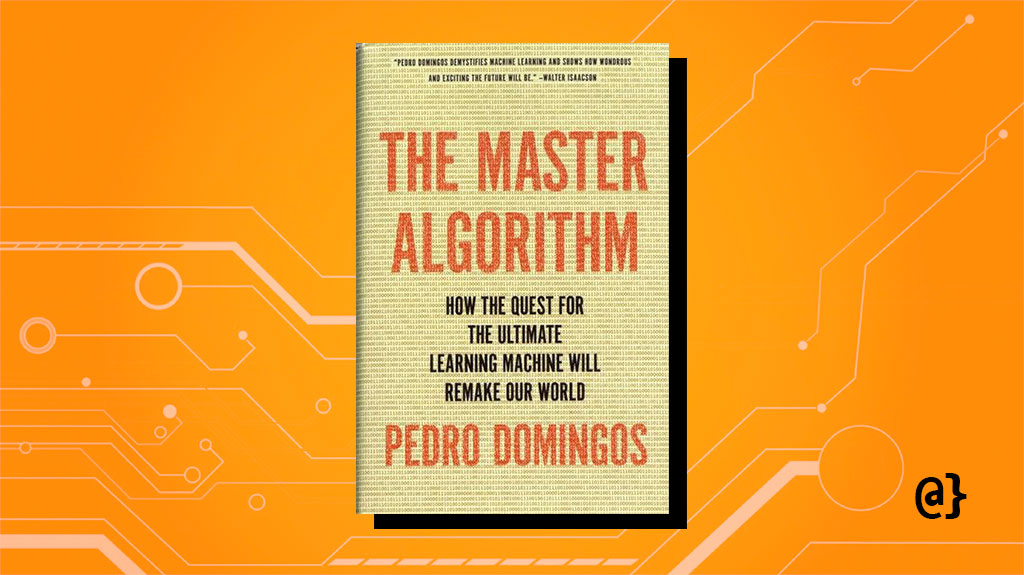
The Master Algorithm is written to be accessible by a general audience and provides a survey of the Machine Learning field starting from its past and working into modern and yet-to-be-realized implementations. The author progresses through many common algorithms, detailing their role in solving complex problems.
The author presents the concept of a “master algorithm” that could solve any problem with enough data. Through the book, the esoteric concept of this idea becomes more feasible as the author weaves their way through technically fluent discussions of the ML field, its future, and current applications. Advocates praise the comprehensive-yet-accessible format while critics note some of the praise for the book’s accessibility may be a bit overzealous as some parts require deeper technical knowledge to grasp.
Author(s): Pedro Domingos
ISBN: 978-0465065707
Human + Machine
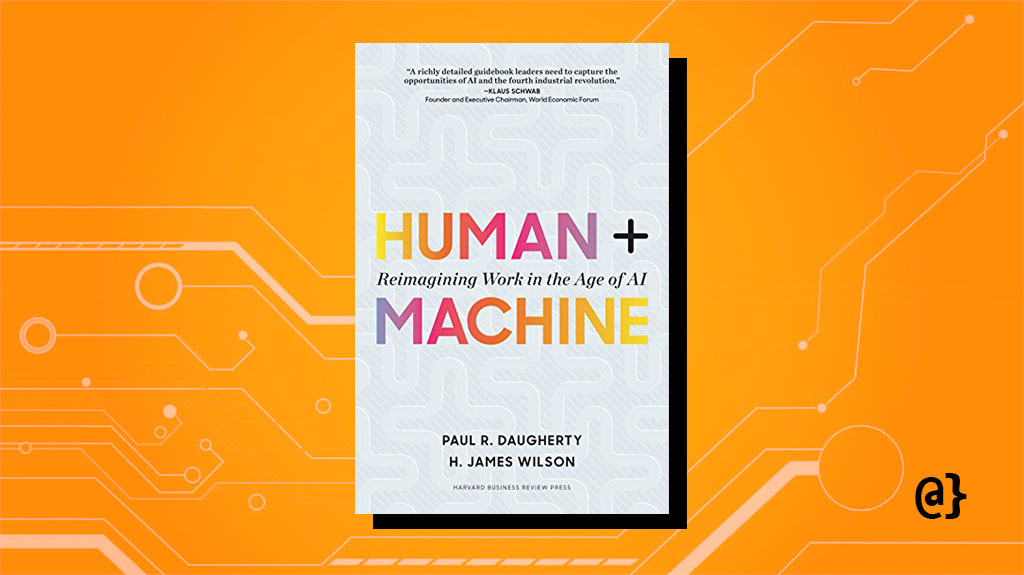
Human + Machine is a detailed account of how artificial intelligence has become integral to businesses and economic applications on a global scale. Throughout the book. the authors discuss the role AI is currently playing, as well as the role it may play, in companies around the world. This title reads as though the target audience is business leaders and those standing to benefit from deeper insight into the role AI can play in the modern economic terrain.
Advocates of this title note that not only does this book paint a favorable picture for AI’s future role in business but it also provides actionable steps leaders can take today. Additionally, advocates praise the author’s deep experience within the field of business such that their vision of AI is well-substantiated and the discussion practical. Critics of the book note a lack of technical depth related to specific AI technology as well as the author’s choice to establish new terminology to discuss hypotheticals.
Author(s): Paul R. Daugherty, H. James Wilson
ISBN: 978-1633693869
Life 3.0: Being Human in the Age of Artificial Intelligence
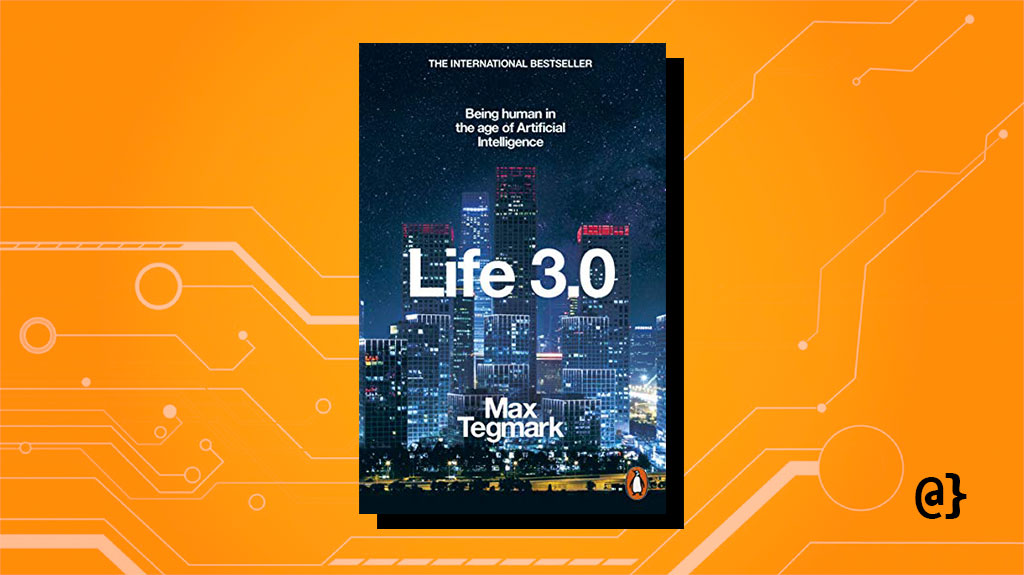
Life 3.0 is a title written to be accessible to the general public. It seeks to clear the record of AI’s role in the future—one the author feels has been influenced too much by Hollywood. Rather than focusing on any single application or issues surrounding AI, Life 3.0 covers a wide berth of scenarios in which future AI will play a role—from job markets to modern military conflicts, to political and socio-economic applications.
Advocates of this title note the power behind the author’s explanatory style, their use of the Life 1.0, Life 2.0, and Life 3.0 system to paint a picture of our collective progression as a species. Critics of the title note the author seems cemented in their stance of portraying AI as positive and keeping an unbalanced tone of positivity. Additionally, those critical of this book describe the author’s use of fictitious scenarios and lack of adding technical depth weaken the perspectives and arguments posed.
Author(s): Tegmark Max Tegmark Max
ISBN: 978-0141981802
Honorable Mentions
Among the search for the best machine learning books several titles came up in searches but either didn’t make it onto recommendations lists or didn’t make it onto enough lists to be included. These books should be regarded as biased recommendations—not derived from the process by which other titles were included:
Machine Learning Yearning

Free Download
This book is authored by one of the most notable names in the Machine Learning field: Andrew Ng. His online courses are rated among the best ML courses available, his works in the field have helped pioneer some of the most utilized approaches in ML, and his role as co-founder of Google Brain makes him nothing less than an authority on the subject. This title is available for free download from the DeepLearning.ai website in PDF format.
Author : Andrew Ng
Pages : 118
Year : 2018
About These Choices
The books on this list were chosen by a survey of more than a dozen websites dedicated partially or wholly to the study of machine learning. These websites were identified through a series of Google keyword searches related to machine learning and artificial intelligence interests.
Books mentioned on fewer than three source websites were excluded from this list. The books with the greatest frequency of mention were ranked highest on this list—many reflecting the same frequency.
Readers are urged to read the full analysis of how this article was produced for a full discussion of the criteria for both selection, inclusion, and exclusion as well as the larger process by which the machine learning books on this list were compiled.
Final Thoughts
Artificial intelligence is a broad field nestled in the heart of computer science. While machine learning is only a subset of AI study it has grown in popularity in recent years. The books on this list are relevant to future CS students seeking to prepare for study, recent graduates looking at doctoral programs, and seasoned professionals sharping their skillsets.
Related : Read this article for a list of general computer science and programming books.
This article has taken to account a consensus of voices from prominent AI and machine learning. This consensus is intended not to serve as the canonical list of the best books out there but, rather, serve as a well-balanced jumping-off point for those seeking more information on machine learning and artificial intelligence. As such, readers are urged to not regard a book’s omission from this list as an indication of a lack of value or any degree of inferiority.

Python Reduce(): A Powerful Functional Programming Made Simple
Have you ever found yourself wondering what all the hype is about functional programming? This ...

Python’s DefaultDict: Hash Tables Made Easy
Hash Tables do wonders for search operations but can quickly cause syntactic clutter when used ...

ESLint + React Functional Component Parameter Destructuring
React and ESLint are both amazing tools for building modern applications. Getting them to work ...

Sentimental Analysis of Book Reviews using Unsupervised Semantic Orientation and Supervised Machine Learning Approaches
Ieee account.
- Change Username/Password
- Update Address
Purchase Details
- Payment Options
- Order History
- View Purchased Documents
Profile Information
- Communications Preferences
- Profession and Education
- Technical Interests
- US & Canada: +1 800 678 4333
- Worldwide: +1 732 981 0060
- Contact & Support
- About IEEE Xplore
- Accessibility
- Terms of Use
- Nondiscrimination Policy
- Privacy & Opting Out of Cookies
A not-for-profit organization, IEEE is the world's largest technical professional organization dedicated to advancing technology for the benefit of humanity. © Copyright 2024 IEEE - All rights reserved. Use of this web site signifies your agreement to the terms and conditions.

- Computers & Technology
- Computer Science

Enjoy fast, free delivery, exclusive deals, and award-winning movies & TV shows with Prime Try Prime and start saving today with fast, free delivery
Amazon Prime includes:
Fast, FREE Delivery is available to Prime members. To join, select "Try Amazon Prime and start saving today with Fast, FREE Delivery" below the Add to Cart button.
- Cardmembers earn 5% Back at Amazon.com with a Prime Credit Card.
- Unlimited Free Two-Day Delivery
- Streaming of thousands of movies and TV shows with limited ads on Prime Video.
- A Kindle book to borrow for free each month - with no due dates
- Listen to over 2 million songs and hundreds of playlists
- Unlimited photo storage with anywhere access
Important: Your credit card will NOT be charged when you start your free trial or if you cancel during the trial period. If you're happy with Amazon Prime, do nothing. At the end of the free trial, your membership will automatically upgrade to a monthly membership.
Buy new: .savingPriceOverride { color:#CC0C39!important; font-weight: 300!important; } .reinventMobileHeaderPrice { font-weight: 400; } #apex_offerDisplay_mobile_feature_div .reinventPriceSavingsPercentageMargin, #apex_offerDisplay_mobile_feature_div .reinventPricePriceToPayMargin { margin-right: 4px; } -5% $56.99 $ 56 . 99 FREE delivery Saturday, June 1 Ships from: Amazon.com Sold by: Amazon.com
Return this item for free.
Free returns are available for the shipping address you chose. You can return the item for any reason in new and unused condition: no shipping charges
- Go to your orders and start the return
- Select the return method

Save with Used - Good .savingPriceOverride { color:#CC0C39!important; font-weight: 300!important; } .reinventMobileHeaderPrice { font-weight: 400; } #apex_offerDisplay_mobile_feature_div .reinventPriceSavingsPercentageMargin, #apex_offerDisplay_mobile_feature_div .reinventPricePriceToPayMargin { margin-right: 4px; } $49.50 $ 49 . 50 FREE delivery Tuesday, June 4 Ships from: Amazon Sold by: Book 444

Download the free Kindle app and start reading Kindle books instantly on your smartphone, tablet, or computer - no Kindle device required .
Read instantly on your browser with Kindle for Web.
Using your mobile phone camera - scan the code below and download the Kindle app.

Follow the authors

Image Unavailable

- To view this video download Flash Player

Introduction to Machine Learning with Python: A Guide for Data Scientists 1st Edition
Purchase options and add-ons.
Machine learning has become an integral part of many commercial applications and research projects, but this field is not exclusive to large companies with extensive research teams. If you use Python, even as a beginner, this book will teach you practical ways to build your own machine learning solutions. With all the data available today, machine learning applications are limited only by your imagination.
You’ll learn the steps necessary to create a successful machine-learning application with Python and the scikit-learn library. Authors Andreas Müller and Sarah Guido focus on the practical aspects of using machine learning algorithms, rather than the math behind them. Familiarity with the NumPy and matplotlib libraries will help you get even more from this book.
With this book, you’ll learn:
- Fundamental concepts and applications of machine learning
- Advantages and shortcomings of widely used machine learning algorithms
- How to represent data processed by machine learning, including which data aspects to focus on
- Advanced methods for model evaluation and parameter tuning
- The concept of pipelines for chaining models and encapsulating your workflow
- Methods for working with text data, including text-specific processing techniques
- Suggestions for improving your machine learning and data science skills.
- ISBN-10 1449369413
- ISBN-13 978-1449369415
- Edition 1st
- Publisher O'Reilly Media
- Publication date November 15, 2016
- Part of series Learning Python
- Language English
- Dimensions 6.9 x 0.7 x 9.1 inches
- Print length 398 pages
- See all details

Frequently bought together

Similar items that may deliver to you quickly
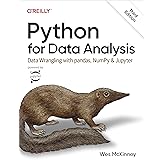
From the brand

Explore our collection
Visit the Store

Sharing the knowledge of experts
O'Reilly's mission is to change the world by sharing the knowledge of innovators. For over 40 years, we've inspired companies and individuals to do new things (and do them better) by providing the skills and understanding that are necessary for success.
Our customers are hungry to build the innovations that propel the world forward. And we help them do just that.
Editorial Reviews
About the author, product details.
- Publisher : O'Reilly Media; 1st edition (November 15, 2016)
- Language : English
- Paperback : 398 pages
- ISBN-10 : 1449369413
- ISBN-13 : 978-1449369415
- Item Weight : 1.56 pounds
- Dimensions : 6.9 x 0.7 x 9.1 inches
- #20 in Natural Language Processing (Books)
- #36 in Python Programming
- #37 in Software Development (Books)
About the authors
Andreas mueller.
Andreas Mueller is a lecturer at the Data Science Institute at Columbia University and author of the O'Reilly book "Introduction to machine learning with Python", describing a practical approach to machine learning with python and scikit-learn. He is one of the core developers of the scikit-learn machine learning library, and has been co-maintaining it for several years. He is also a Software Carpentry instructor. In the past, Andreas Mueller worked at the NYU Center for Data Science on open source and open science, and as Machine Learning Scientist at Amazon
Sarah Guido
Discover more of the author’s books, see similar authors, read author blogs and more
Customer reviews
Customer Reviews, including Product Star Ratings help customers to learn more about the product and decide whether it is the right product for them.
To calculate the overall star rating and percentage breakdown by star, we don’t use a simple average. Instead, our system considers things like how recent a review is and if the reviewer bought the item on Amazon. It also analyzed reviews to verify trustworthiness.
- Sort reviews by Top reviews Most recent Top reviews
Top reviews from the United States
There was a problem filtering reviews right now. please try again later..
Top reviews from other countries
- Amazon Newsletter
- About Amazon
- Accessibility
- Sustainability
- Press Center
- Investor Relations
- Amazon Devices
- Amazon Science
- Sell on Amazon
- Sell apps on Amazon
- Supply to Amazon
- Protect & Build Your Brand
- Become an Affiliate
- Become a Delivery Driver
- Start a Package Delivery Business
- Advertise Your Products
- Self-Publish with Us
- Become an Amazon Hub Partner
- › See More Ways to Make Money
- Amazon Visa
- Amazon Store Card
- Amazon Secured Card
- Amazon Business Card
- Shop with Points
- Credit Card Marketplace
- Reload Your Balance
- Amazon Currency Converter
- Your Account
- Your Orders
- Shipping Rates & Policies
- Amazon Prime
- Returns & Replacements
- Manage Your Content and Devices
- Recalls and Product Safety Alerts
- Conditions of Use
- Privacy Notice
- Consumer Health Data Privacy Disclosure
- Your Ads Privacy Choices

Book Recommendation System with Machine Learning
- May 23, 2020
- Machine Learning

Recommendation systems are among the most popular applications of data science. They are used to predict the Rating or Preference that a user would give to an item.
Almost every major company has applied them in some form or the other: Amazon uses it to suggest products to customers, YouTube uses it to decide which video to play next on auto play, and Facebook uses it to recommend pages to like and people to follow.
Let’s Build our own recommendation system
In this Data Science project, you will see how to build a Book Recommendation System model using Machine Learning Techniques.
You can download the data sets we need for this task from here:
Let’s start with this project
#Output (1149780, 3) [‘userID’, ‘ISBN’, ‘bookRating’]

#Output (271360, 8) [‘ISBN’, ‘bookTitle’, ‘bookAuthor’, ‘yearOfPublication’, ‘publisher’, ‘imageUrlS’, ‘imageUrlM’, ‘imageUrlL’]
#Output (278858, 3) [‘userID’, ‘Location’, ‘Age’]

To ensure statistical significance, users with less than 200 ratings, and books with less than 100 ratings are excluded.
Collaborative Filtering Using k-Nearest Neighbors (kNN)
kNN is a machine learning algorithm to find clusters of similar users based on common book ratings, and make predictions using the average rating of top-k nearest neighbors.
For example, we first present ratings in a matrix with the matrix having one row for each item (book) and one column for each user.
Now we will group by book titles and create a new column for total rating count.
Now we will combine the rating data with the total rating count data, this gives us exactly what we need to find out which books are popular and filter out lesser-known books.
Filter to users in US and Canada only
Implementing knn.
We convert our table to a 2D matrix, and fill the missing values with zeros (since we will calculate distances between rating vectors).
We then transform the values(ratings) of the matrix dataframe into a scipy sparse matrix for more efficient calculations.
Follow us on Instagram for all your Queries
Aman Kharwal
Data Strategist at Statso. My aim is to decode data science for the real world in the most simple words.
Recommended For You

Companies Offering Data Science Internships
- May 24, 2024

Algorithms Every Data Analyst Should Know
- May 22, 2024

Python Modules for Data Science You Should Know
- May 21, 2024

Roadmap to Learn Cloud Platforms for Data Science
- May 14, 2024
Hi Arman, I just began with your article on algorithmic Trading. And then after clicking on previous and next articles, I felt I found a treasure. Just great. Vinod Merchant
Thanks Vinod, Keep visiting us⭐⭐
Leave a Reply Cancel reply
Discover more from thecleverprogrammer.
Subscribe now to keep reading and get access to the full archive.
Type your email…
Continue reading
Fake Review Prediction Using Machine Learning
- Conference paper
- First Online: 01 June 2023
- Cite this conference paper

- C Sasikala 14 ,
- Rajasekaran Thangaraj 14 ,
- Devipriya R 15 ,
- S RajeshKumar 14 ,
- Ramachandramoorthy K. B 14 ,
- S Ramya 14 &
- K Umapathi 14
Part of the book series: Lecture Notes in Networks and Systems ((LNNS,volume 717))
Included in the following conference series:
- International Conference on Intelligent Systems Design and Applications
239 Accesses
Fake Review prediction is one of the Complex areas to be scrutinized to know the original Commands. In Recent years have seen a change in movie reviews based on the expectations and frame of mind of the audience, which is crucial to a film's success or failure. After reading the review, individuals began to watch the film, which fixed their perception of the plot. The research we conducted to create a machine learning model that can determine if user reviews on the IMBD Movie Dataset are authentic or fake is summarized in this publication. To determine which machine learning categorization approach would produce the best results, we specifically applied and contrasted them. To make it easier to understand why some approaches are preferable to others in specific situations, comprehensive explanations are provided for each of the categorization strategies. The Support Vector Machine (SVM) classifier, which had an accuracy of 89.49%, produced the best results.
This is a preview of subscription content, log in via an institution to check access.
Access this chapter
- Available as PDF
- Read on any device
- Instant download
- Own it forever
- Available as EPUB and PDF
- Compact, lightweight edition
- Dispatched in 3 to 5 business days
- Free shipping worldwide - see info
Tax calculation will be finalised at checkout
Purchases are for personal use only
Institutional subscriptions
Salminen, J., Kandpal, C., Kamel, A.M., Jung, S.G., Jansen, B.J.: Creating and detecting fake reviews of online products. J. Retail. Consum. Serv. 64 , 102771 (2022)
Article Google Scholar
Devika, P., Veena, A., Srilakshmi, E., Reddy, A. R., Praveen, E.: Detection of fake reviews using NLP & Sentiment Analysis. In 2021 6th International Conference on Communication and Electronics Systems (ICCES), (pp. 1534–1537). IEEE (2021)
Google Scholar
Lin, T.-Y., Chakraborty, B., Peng, C.-C.: A study on identification of important features for efficient detection of fake reviews. Int. Conf. Data Anal. Business Indus. (ICDABI) 2021 , 429–433 (2021). https://doi.org/10.1109/ICDABI53623.2021.9655845
Tufail, H., Ashraf, M.U., Alsubhi, K., Aljahdali, H.M.: The effect of fake reviews on e-commerce during and after Covid-19 pandemic: SKL-based fake reviews detection. IEEE Access 10 , 25555–25564 (2022)
Patel, N.A., Patel, R.: A survey on fake review detection using machine learning techniques. In: 2018 4th International Conference on Computing Communication and Automation (ICCCA), (pp. 1–6). IEEE (2018)
Abri, F., Gutiérrez, L.F., Namin, A.S., Jones, K.S., Sears, D.R.: Linguistic features for detecting fake reviews. In: 2020 19th IEEE International (2020)
Mohawesh, R., et al.: Fake reviews detection: a survey. IEEE Access 9 , 65771–65802 (2021)
Khan, H., Asghar, M.U., Asghar, M.Z., Srivastava, G., Maddikunta, P.K.R., Gadekallu, T.R.: Fake review classification using supervised machine learning. In: Del Bimbo, A., Cucchiara, R., Sclaroff, S., Farinella, G.M., Mei, T., Bertini, M., Escalante, H.J., Vezzani, R. (eds.) ICPR 2021. LNCS, vol. 12664, pp. 269–288. Springer, Cham (2021). https://doi.org/10.1007/978-3-030-68799-1_19
Chapter Google Scholar
Paul, H., Nikolaev, A.: Fake review detection on online E-commerce platforms: a systematic literature review. Data Min. Knowl. Disc. 35 (5), 1830–1881 (2021). https://doi.org/10.1007/s10618-021-00772-6
Article MathSciNet Google Scholar
Elmogy, A.M., Tariq, U., Ammar, M., Ibrahim, A.: Fake reviews detection using supervised machine learning. Int. J. Adv. Comput. Sci. Appl. 12 (1), (2021)
Tufail, H., Ashraf, M.U., Alsubhi, K., Aljahdali, H.M.: The Effect of Fake Reviews on e-Commerce During and After Covid-19 Pandemic: SKL-Based Fake Reviews Detection. IEEE Access, 10 , 25555–25564 ((2022))
Mandical, R.R., Mamatha, N., Shivakumar, N., Monica, R., Krishna, A.N.: Identification of fake news using machine learning. In: 2020 IEEE International Conference on Electronics, Computing and Communication Technologies (CONECCT), (pp. 1–6). IEEE (2020)
Hussain, N., Mirza, H.T., Hussain, I., Iqbal, F., Memon, I.: Spam review detection using the linguistic and spammer behavioral methods. IEEE Access 8 , 53801–53816 (2020)
Hassan, R., Islam, M.R.: Impact of sentiment analysis in fake online review detection. In: 2021 International Conference on Information and Communication Technology for Sustainable Development (ICICT4SD), (pp. 21–24). IEEE
Alsubari, S.N., et al.: Data analytics for the identification of fake reviews using supervised learning. CMC-Comput. Mater. Continua 70 (2), 3189–3204 (2022)
Download references
Author information
Authors and affiliations.
Department of Computer Science and Engineering, KPR Institute of Engineering and Technology Coimbatore, Coimbatore, India
C Sasikala, Rajasekaran Thangaraj, S RajeshKumar, Ramachandramoorthy K. B, S Ramya & K Umapathi
Department of Computer Science and Engineering, Centre for IOT and AI, KPR Institute of Engineering and Technology Coimbatore, Coimbatore, India
Devipriya R
You can also search for this author in PubMed Google Scholar
Corresponding author
Correspondence to Ramachandramoorthy K. B .
Editor information
Editors and affiliations.
Faculty of Computing and Data Science, FLAME University, Pune, Maharashtra, India
Ajith Abraham
Center for Smart Computing Continuum, Burgenland, Austria
Sabri Pllana
University of Bari, Bari, Italy
Gabriella Casalino
University of Jinan, Jinan, Shandong, China
Department of Computer Science and Engineering, Thapar Institute of Engineering and Technology, Patiala, Punjab, India
Rights and permissions
Reprints and permissions
Copyright information
© 2023 The Author(s), under exclusive license to Springer Nature Switzerland AG
About this paper
Cite this paper.
Sasikala, C. et al. (2023). Fake Review Prediction Using Machine Learning. In: Abraham, A., Pllana, S., Casalino, G., Ma, K., Bajaj, A. (eds) Intelligent Systems Design and Applications. ISDA 2022. Lecture Notes in Networks and Systems, vol 717. Springer, Cham. https://doi.org/10.1007/978-3-031-35510-3_50
Download citation
DOI : https://doi.org/10.1007/978-3-031-35510-3_50
Published : 01 June 2023
Publisher Name : Springer, Cham
Print ISBN : 978-3-031-35509-7
Online ISBN : 978-3-031-35510-3
eBook Packages : Intelligent Technologies and Robotics Intelligent Technologies and Robotics (R0)
Share this paper
Anyone you share the following link with will be able to read this content:
Sorry, a shareable link is not currently available for this article.
Provided by the Springer Nature SharedIt content-sharing initiative
- Publish with us
Policies and ethics
- Find a journal
- Track your research

COMMENTS
Best for advanced learners: Artificial Intelligence: A Modern Approach by Stuart Rusell and Peter Norvig. Machine Learning: A Probabilistic Perspective by Kevin P. Murphy. Advanced Machine Learning with Python: Solve data science problems by mastering cutting-edge machine learning techniques in Python by John Hearty.
Classification Models with Book Reviews. We examined both machine learning and deep learning approaches for using book reviews. To effectively use machine learning classifiers, we converted each book review into a matrix using three feature representation methods: BoW, TF-IDF (Joachims, 1997), and word2vec (Mikolov et al., 2013).
Among the most essential NLP applications is sentiment analysis, often known as opinion mining. In recent years, sentiment analysis has received a lot of attention. It is concerned with text classification in order to establish the intent of the text's final user. End-user feedback becomes the most important factor in determining the quality of a book's content. Online book reviews are ...
This book's strength is its vast exploration of all aspects of machine learning while explaining the nuisances of machine learning (particularly using python, Scikit-Learn and Keras) in practice. The advice given in each chapter will help you avoid some of the common pitfalls you might encounter on your own machine learning journey.
This book explains each phase of the ML Systems Lifecycle and is a complete and concise resource for anyone who intends to build scalable ML-powered applications. The book is a compilation of engineering challenges and best practices to make ML work in production. Andriy explains how you should look to plan a project, why projects might fail ...
ISBN: 978-1491962299. This book presents readers with a gentle introduction to machine learning concepts, starting low and going slowly into more advanced applications and algorithms. The authors provide practical examples using Python, with heavy use on Keras (via TensorFlow) and Scikit-Learn.
The book that keeps giving: The accompanying wiki. The Hundred-Page Machine Learning Book is covered with QR codes. For those after extra-curriculum, the QR codes link to accompanying documentation for each chapter. The extra material includes code examples, papers and references where you can dive deeper.
1. The Hundred-Page Machine Learning Book by Andriy Burkov. Best machine learning overview. In just over 100 pages, this book offers a solid introduction to machine learning in a writing style that makes AI systems easy to understand. Data professionals can use it to expand their machine-learning knowledge.
A very comprehensive book indeed! The book is the new member of Packt's ML series that includes a 2019 title I reviewed a couple of years ago: " Python Machine Learning, 3rd Edition .". The two books have largely the same content with one big exception, the previous book was based on TensorFlow for deep learning topics, while this one ...
With the advent of technology, Sentiment polarity detection has recently piqued the interest of NLP researchers. Sentiment analysis determines the profound meaning of an article. Due to COVID-19 pandemic, online shopping is the safest way of shopping. Moreover, there are product quality and service issues. Our target is to analyze the book reviews which provide positive and negative reviews in ...
The hardcover book is very attractive, well-produced and solid! It will weigh down your backpack for sure. As a university instructor myself, I immediately appreciated author and University of Washington professor Chirag Shah 's pedagogical approach. This is a gainful learning tool. Every chapter has excellent coverage of the typical machine ...
Sentimental analysis aims at identifying the opinions of various users. This paper presents my research work on the application of sentimental analysis on book reviews. I have applied both unsupervised (Semantic Orientation - Pointwise Mutual Information - Information Retrieval) and supervised (Support Vector Machine and Naïve Bayes) machine learning approaches on two openly available book ...
The following article describes the application of a range of supervised and unsupervised machine learning models to a dataset of Amazon product reviews in an effort to predict rating value. The…
Abstract. Sentimental analysis is gaining popularity in the field of text mining. It is the study of people's opinions about any event, individual, or topic. Users are posting online reviews and opinions about specific products or services and it has become a popular way to share our reviews on the social web, as it is difficult to obtain ...
Authors Andreas Müller and Sarah Guido focus on the practical aspects of using machine learning algorithms, rather than the math behind them. ... (856 pages vs 400) and almost two-thirds of Geron's is about deep learning. This review is comparing this book to the first third of Geron's book. This book only provides several pages on deep ...
2020, Cambridge University Press. Machine Learning for Asset Managers, by Marcos M. López de Prado, Cambridge University Press (2020). ISBN 9781108792899. Paperback. Studying machine learning has become a big data problem. The field is characterized by an abundance of techniques, and for each technique, there are dozens of possible implementa ...
Andriy Burkov. 4.34. 120 ratings14 reviews. The most comprehensive book on the engineering aspects of building reliable AI systems. "If you intend to use machine learning to solve business problems at scale, I'm delighted you got your hands on this book." -Cassie Kozyrkov, Chief Decision Scientist at Google.
Machine. A Review of. Learning. Dennis Kibler. Tom Mitchell states that the goal of his text Machine Learning is to present the key algorithms and theory that form the core of machine learning. Not only has Mitchell suc-ceeded in his primary goal, but he has accomplished a number of other important goals. My major interest in this book is as an ...
In this study, six separate machine learning methods are used in text categorization; the SVM, ANN, NB, DT, C4.5 and kNN methods are used due to their usability and accuracy in text categorization. The reason for using a classifier is to compare the performances of the six methods in the text categorization.
Aman Kharwal. May 23, 2020. Machine Learning. 2. Recommendation systems are among the most popular applications of data science. They are used to predict the Rating or Preference that a user would give to an item. Almost every major company has applied them in some form or the other: Amazon uses it to suggest products to customers, YouTube uses ...
The Scikit-Learn Cookbook is a focused book written by Trent Hauck and published by Packt Publishing. The subtitle for the book is: Over 50 recipes to incorporate scikit-learn into every step of the data science pipeline, from feature extraction to model building and model evaluation. It was published at the end of 2014 and it is just under 200 ...
The customers will probably book the ticket if they thought the reviews were positive . As a result, historical analyses become one of the most dependable information sources for many web services. ... This study presents a method for detecting fake reviews using machine learning. Each Model Built brings ahead closer to anticipating fake ...
The sentiment analysis process can be automated using machine learning techniques, which analyses text patterns faster. The supervised machine learning technique is the most used mechanism for ...